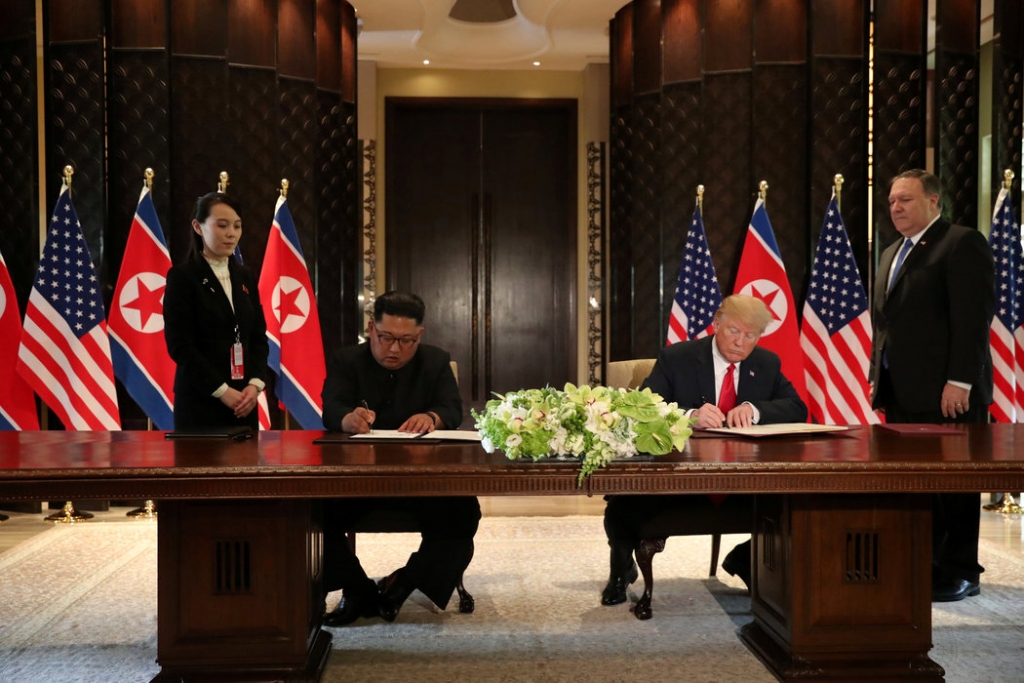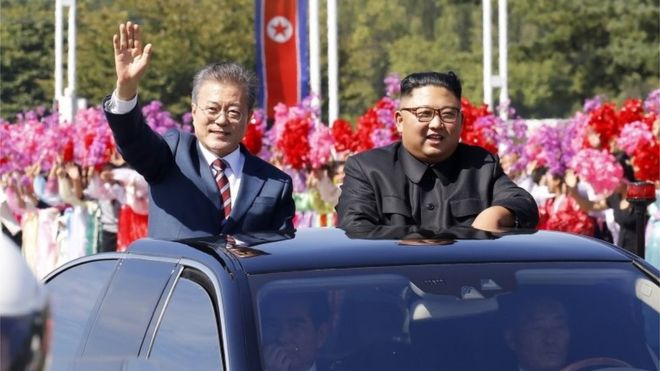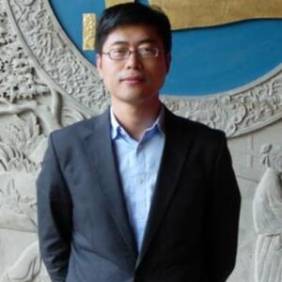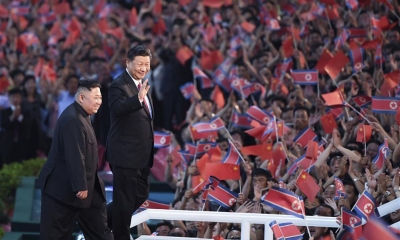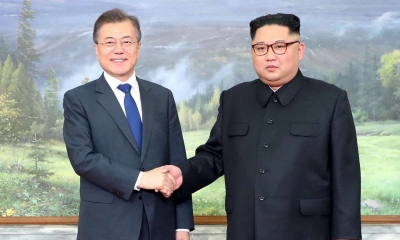Trump-Kim Summit Ends Fruitlessly: Three Major Signals Are Perceptible
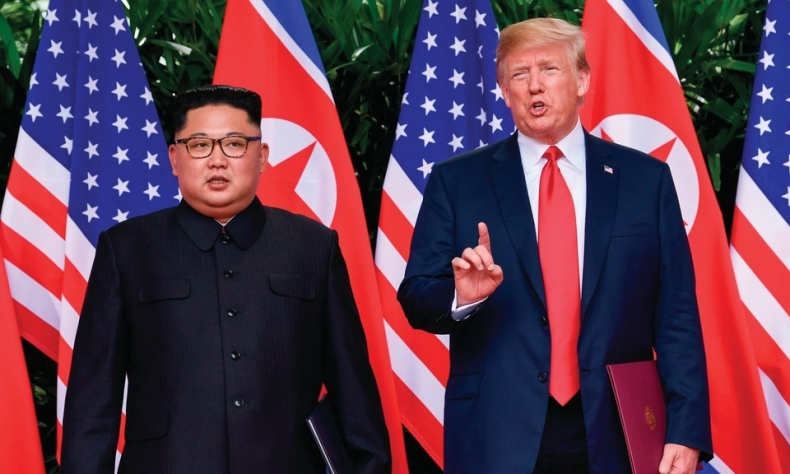
In the next few years, it is almost unlikely to expect more meaningful results in dialogue and negotiations between the US and the DPRK, and we can’t expect South Korea-DPRK reconciliation and cooperation to maintain the current momentum.
The Hanoi talks concluded in the “City of Peace” without leading to an agreement between Donald Trump and Kim Jong-un. Compared with the international community’s general expectations, the second round of Trump-Kim summit didn’t bring any surprises but instead, triggered a new round of possibility of worsening US-DPRK relations and the Korean Peninsula situation.
Why did the Trump-Kim summit make no progress
Over the two days of talks, there have been consistent reports about the news that is not optimistic about the US-DPRK talks.
The first piece of bad news is South Korea’s new political turbulence. According to the Yonhap News Agency, on the evening of 27th, Hwang Kyo-ahn was elected leader of Liberty Korea Party, South Korea’s largest opposition party. As former president Park Geun-hye’s trusted follower, Hwang said in his victory speech, “From now on, I will fight against Moon Jae-in regime’s tyranny and fight fiercely to protect the people and the state.”
The second piece of bad news is that Trump faces the biggest challenge since he took office. On 26th February, the US House of Representatives voted to overthrow Trump’s “emergency order”. On the 27th, Michael Cohen, an important witness in “Russiagate” and President Trump’s former private lawyer, accused him of being a “racist”, “hypocrite”, and “liar”. This incident set off a storm in the US political circle and became the focus of US public opinion.
The combination of the above two political events has had a very negative impact on the promotion of the denuclearization process.
First of all, in 2022, three years later, if the Moon Jae-in government steps down, the South Korean pro-US conservative government-led policy toward DPRK would return to a state of more conservative pressure. Meanwhile, relations between South Korea and DPRK and the Korean Peninsula situation would once again fall into a vicious circle. This is obviously not what Kim Jong-un wants to see.
Secondly, continuous escalation of the “Russiagate” incident shows that before the upcoming 2020 election, the US political infighting will continue to intensify, and President Trump may even face the risk of impeachment. For Trump, the energy and time to deal with the DPRK nuclear issue is limited.
Aside from the adverse effects of these incidents, the US and the DPRK have not reached a compromise on “completely denuclearizing the Korean Peninsula” and “establishing a new type of US-DPRK relationship”. Following the US stance on “complete nuclear declaration, inspection and diplomatic security compensation” and “eliminating economic sanctions after complete denuclearization”, the DPRK would completely lose all bargaining chips. Similarly, the US would be taking risks if it accepted DPRK’s aim of “phased partial denuclearization and elimination of all sanctions”.
For both sides, the biggest challenge may not be the problem of how to technically solve the variance in their interests, but the trust deficit that has grown over the past decades due to ideological differences.
Three signals are perceptible
In the next few years, it is almost unlikely to expect more meaningful results in dialogue and negotiations between the US and the DPRK, and we can’t expect South Korea-DPRK reconciliation and cooperation to maintain the current momentum. This summit has made three signals quite perceptible.
Firstly, the US policy of suppressing the DPRK will not change its course easily.
Regarding the direct reason for the failure of the talks, US President Trump stated at the press conference at the JW Marriott Hotel in Hanoi, Vietnam that comprehensive and irreversible denuclearization is a very crucial concept. He added that the DPRK should completely abandon its nuclear program and that although the DPRK hopes for comprehensive relaxation of sanctions, only when the US achieves expected denuclearization will they do so.
The complete, verifiable and irreversible denuclearization (CVID) has been Trump’s consistent position toward the DPRK since taking office. For the duration of more than two years of his administration, the basic idea of US settlement of the DPRK nuclear issue has not deviated from “extreme pressure”. After policy assessment, the US has also realized that under the opposition of the international community, conditions for using force to solve the DPRK nuclear issue are not in place. Therefore, it is the last resort policy to continuously force the DPRK to abandon its nuclear program through strong sanctions.
Failure of talks will enhance Trump’s negative views of Kim Jong-un and the DPRK. As early as June 2017, Trump accused the DPRK regime of being brutal and cruel and not respecting lives. In November of the same year, he called Kim “a brutal dictator” in a speech at the South Korean Parliament. In the future, the US will not relax the current economic sanctions against the DPRK.
Secondly, the DPRK’s peaceful transition will face even more daunting challenges.
Is the DPRK ready to abandon its nuclear program? Though Kim Jong-un said that he came to Hanoi with a plan to abandon the nuclear program, facts show that DPRK will not easily give up its hard-won nuclear weapons.
Nuclear weapons are an important pillar of the DPRK’s realization of a powerful country. The DPRK authorities continue to promote nuclear support as a national policy but were shocked by the extreme pressure they faced. Due to concerns about its institutional security, Kin Jong-un needed to pass on the Korean Peninsula’s denuclearization responsibility to the US through negotiations, and a phased nuclear abandonment program may eventually become substantial nuclear support.
The talks ended with no results. The daunting challenge that follows is that DPRK might lose the opportunity for peaceful development. The DPRK has tried to reduce nuclear-abandonment pressure by the international community and taken advantage of contradictions of great powers to gain economic development opportunities. However, as long as the DPRK does not abandon its nuclear program, sanctions against it will not be lifted. As a result, the DPRK will be more fragile due to long-term dissociation from the international community.
Thirdly, the DPRK-South Korea cooperative relationship will not achieve any substantive breakthrough.
The Moon Jae-in government, which considers the DPRK as a partner, is affected by this summit the most. South Korea hoped that this summit might make a breakthrough, especially that the US could relax restrictions on economic cooperation between South Korea and the DPRK in terms of its sanctions against the DPRK. Failure of this summit directly affected the stock market. The “Hanoi Shock” caused stocks related to South Korea-DPRK economic cooperation to fall sharply.
Due to the failure of the talks, Moon’s hope of inviting Kim to visit Seoul may also be lost. The question is not how the Trump government restricts South Korea’s reconciliation policy, but whether the DPRK is willing to give up its nuclear weapons. In the past, during Kim Dae-jung and Roh Moo-hyun’s reign, the reason why economic cooperation between the DPRK and South Korea was smooth was that the DPRK nuclear program did not pose a substantial security threat to South Korea. The situation today, however, has changed significantly.
Even if the Moon government can force a resumption of the economic cooperation projects of Mount Kumgang tourism and Kaesong Industrial Zone regardless of US pressure, it cannot implement a cooperation policy with the DPRK regardless of public opposition and the political pressure of the opposition parties. For the Moon government that is close to halfway of its office, the biggest test is that it is becoming harder to restart economic cooperation projects with the DPRK.
Editor: Yuan Yanan
 Facebook
Facebook
 Twitter
Twitter
 Linkedin
Linkedin
 Google +
Google +

